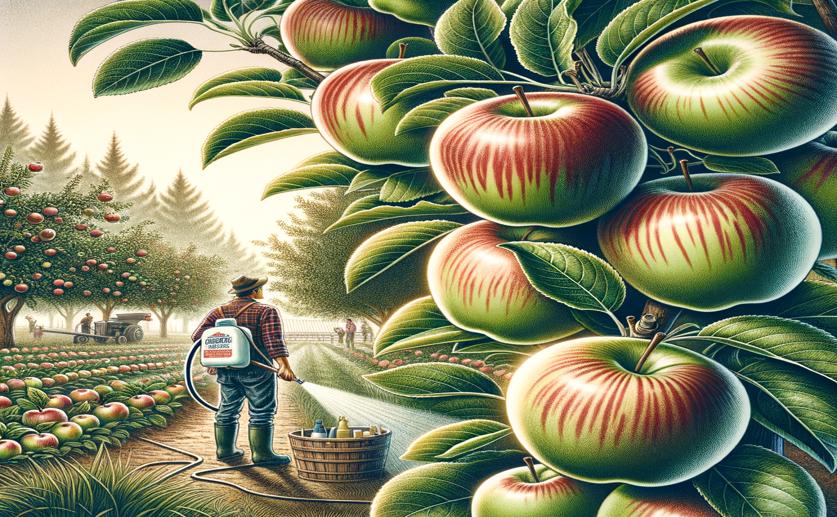
How Pre-Harvest Treatment Affects Quality and Shelf Life of Scilate Apples
Jenn Hoskins
8th August, 2024

Image Source: Natural Science News, 2024
Key Findings
- The University of Tasmania study found that pre-harvest 1-MCP application significantly improved the post-harvest quality and storability of 'Scilate' apples
- Apples treated with 1-MCP had higher malic acid levels and lower juice pH after 7.5 months of storage, indicating better preservation of fruit quality
- Pre-harvest 1-MCP application reduced the respiration rate of apples by 32%, slowing down the ripening process and extending storage life
FruitsAgriculturePlant Science
References
Main Study
1) Impact of pre-harvest application of 1-methylcyclopropene (1-MCP) on fruit quality, physiological disorders and respiration rate of ‘Scilate’ apple
Published 7th August, 2024
https://doi.org/10.1007/s13580-024-00616-4
Related Studies
2) Timing of Ethylene Inhibition Affects Internal Browning and Quality of 'Gala' Apples in Long-Term Low Oxygen Storage.
3) Interactive responses of gala apple fruit volatile production to controlled atmosphere storage and chemical inhibition of ethylene action.
Journal: Journal of agricultural and food chemistry, Issue: Vol 53, Issue 11, Jun 2005



 7th June, 2024 | Greg Howard
7th June, 2024 | Greg Howard